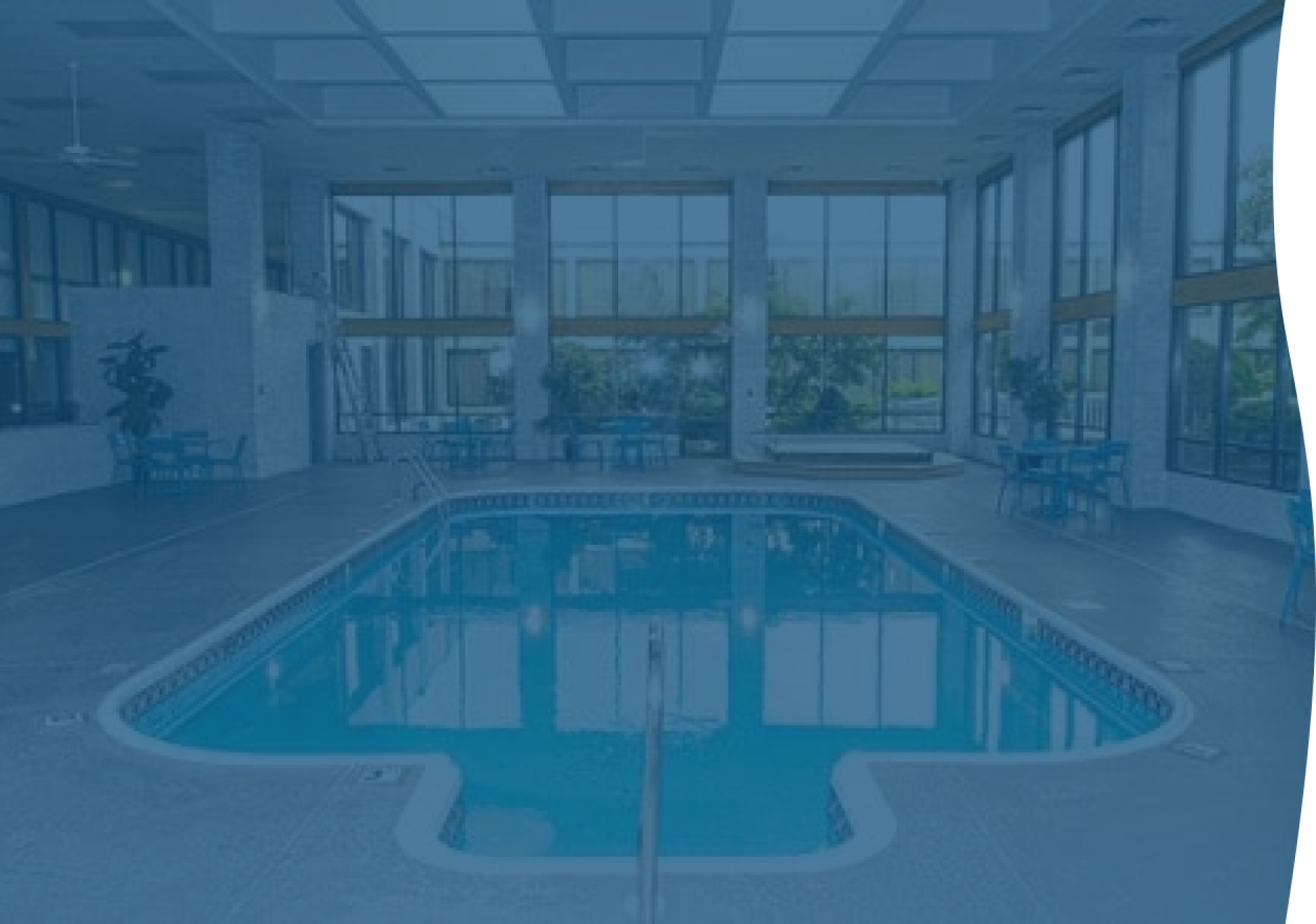While visiting the town of Decatur, Illinois, travelers might want to stop at Lake Decatur, the Scovill Zoo, or the Children’s Museum of Illinois.
Clearly, this Macon County city of about 70,000 residents offers a lot. Unfortunately, it still hasn’t been able to avoid the opioid epidemic or alcohol abuse.
In late December 2018, in Decatur, Illinois, traffic patrols arrested 25 people for driving under the influence of alcohol or drugs in the span of 16 days.
Other substances are used and sold in the city. For example, a July 2021 drug bust in Decatur uncovered $7,500 in cash, numerous weapons, and:
- 83.3 grams (2.9 ounces) of cocaine in powder form.
- 96.6 grams (3.4 ounces) of rock-like cocaine (crack cocaine).
- 387.7 grams (13.6 ounces) of heroin.
Such incidents illustrate how drugs and alcohol are problems in Decatur.
Student Substance Use Disorder in Decatur, Illinois College Students
Educational and training opportunities also abound in the city. Decatur is home to Millikin University, Richland Community College, and the Reflections Academy of Beauty.
Millikin University students can make appointments to address their mental and behavioral health, including problems they might be experiencing with alcohol or drugs, at the school’s Millikin Health Clinic. Richland Community College students can use the META telehealth platform to meet with mental health professionals online.
Like adults in Decatur, Illinois, college students have options. A student also may have access to rehab in nearby cities, such as rehab in Champaign, IL.

Our closest facility is in Illinois
19067 W Frontage Rd, Raymond, IL 62560-505
Talk to Our Intake Coordinators
What to Look for When Choosing Rehabs in Decatur, Illinois
People might not know much about addiction or how to choose the treatment that could help them or a loved one. But to find rehabs in Decatur, Illinois, and surrounding areas, they might want to examine a few criteria. While researching rehabs in the area, consider comparing them with other centers in the state—such as inpatient rehab in Normal, IL. The criteria include:
Accreditation and Certification
Certification and accreditation mean that third parties have examined rehab providers and approved of their practices.
One organization that accredits or certifies addiction treatment providers is The Joint Commission, which sets standards for safety and quality. Another organization, CARF International (the Commission on Accreditation of Rehabilitation Facilities), examines whether behavioral treatment providers and opioid treatment programs meet its standards.
Another organization, LegitScript, provides certification for behavioral health providers that it believes act in good faith to provide quality care.
If there are local centers that don’t suffice with certifications, consider comparing them to centers in nearby cities, such as a rehab center in Bloomington.
Demographics
Demographics can help us better understand the specific characteristics of populations.
For example, in 2019, the U.S. Census Bureau estimated that 21% of the population of Decatur, Illinois, is Black or African American. Culturally sensitive rehab assistance in and around Decatur can help people feel more comfortable and enhance the treatment process.
Client-to-Staff Ratio
When a rehab center or program has a low client-to-staff ratio (also known as a patient-to-staff ratio), staff members have fewer clients and aren’t overwhelmed with job demands. As a result, clients receive more time with staff members and more personalized attention.
A favorable client-to-staff ratio thus benefits both clients and staff.
Services Included in Treatment
If people want to address problems with alcohol or drugs, there are many types of treatment available in and near Decatur, IL, and Macon County:
Luxury rehab in Decatur, Illinois
Luxury rehab centers might resemble upscale resorts more than the medically-based facilities that they are. These centers might offer pools, gyms, and beach access in addition to treatment options. Luxury rehab may not be available in all cities, so be sure to check larger cities, such as Chicago rehab centers.
Inpatient drug rehab in Decatur, Illinois
Clients stay at the facilities where they’re receiving treatment during inpatient drug rehab. This removes them from factors that can trigger their drug abuse or addiction while helping them develop tools to fight these triggers.
Inpatient alcohol rehab in Decatur, Illinois
Residential or inpatient alcohol rehab also requires clients to stay on-site at their treatment centers. By staying at their facilities, clients have immediate access to professional assistance if they experience medical emergencies or other challenges during alcohol withdrawal or at other times.
IOPs (intensive outpatient programs) in Decatur, Illinois
A person participating in an IOP (intensive outpatient program) doesn’t have to stay at a treatment facility. But they will still receive thorough care that typically lasts several hours a day for several days a week.
Holistic rehab in Decatur, Illinois
Another approach to manage substance use disorder and addiction—holistic rehab uses methods that address clients’ spirits and minds as well as their bodies. These methods might include yoga, meditation, or acupuncture.
Dual diagnosis rehab in Decatur, Illinois
Treating both addictions and accompanying mental illnesses (bipolar disorder, eating disorders, depression, anxiety, etc.) is necessary so that one condition doesn’t influence the other. Dual diagnosis does this by incorporating therapy and group sessions to address the mental aspects of substance use disorder and addiction.
Cognitive behavioral therapy (CBT) in Decatur, Illinois
Cognitive behavioral therapy (CBT) is a type of therapy that works to change clients’ feelings and thoughts in an effort to change their behaviors. Many addiction treatment centers incorporate CBT and other therapeutic approaches.
Aftercare in Decatur, Illinois
Aftercare planning procedures include finding therapists, support groups, and other forms of care after people leave addiction treatment centers or programs. This continued care aims to create continued sobriety.
Such approaches can help people address their problems and solve them.
Support Groups in Decatur, Illinois
Support groups give people in treatment and recovery the chance to share their stories, challenges, and triumphs.
Learn More About Your Insurance Coverage
Don't see your Insurance Provider?
12-Step Rehab in Decatur, Illinois
Several support organizations feature programs that encourage participants to progress through a series of twelve steps. Some 12-step groups include:
- Alcoholics Anonymous (AA) is the original 12-step organization; it asks members to submit to a higher power and admit that they’re powerless against their alcohol use.
- Al-Anon and Alateen are organizations that support the loved ones of people who have alcohol-related problems. Alateen helps teens and young people.
- Nar-Anon supports people who have abused or are addicted to drugs.
- Marijuana Anonymous (MA) assists people who feel they have problems with marijuana.
- Cocaine Anonymous (CA) provides help for people who have experienced cocaine addictions or abuse.
- Dual Recovery Anonymous (DRA) helps people who have problems with drugs or alcohol as well as mental illnesses.
- Local Celebrate Recovery (CR) groups incorporate the teachings of Christianity to help people heal from substance use disorder or addiction.
Many addiction treatment centers embrace 12-step rehab approaches for their clients while they’re in treatment and after they leave their facilities. Twelve-step rehab is extremely popular and likely to be available across the state in a Springfield rehabilitation center.
Non-12-Step Rehab in Decatur, Illinois
While many endorse the tactics and perspectives of 12-step support groups and organizations, some people may want alternatives. They might not feel comfortable with the groups’ discussions of a higher power and other aspects of the programs.
Non-12-step rehab and aftercare options use approaches that are less spiritual and more scientific. Some organizations that employ a non-12-step system include:
- LifeRing Secular Recovery (LifeRing) says that a person with substance use disorders should encourage their sober self while discouraging their addict self.
- SMART Recovery (Self-Management and Recovery Training) uses science-backed evidence to understand and treat addictions.
- Women for Sobriety (WFS) reminds people who identify as female that they have the power and inner resources to overcome their substance use disorders.
- Adult Children of Alcoholics (ACA) notes that parental problems with alcohol and drugs and other dysfunction can have long-lasting effects on children.
- Moderation Management (MM) employs tools to help people moderate or end their use of alcohol.
People can participate in the 12-step and non-12-step organizations by researching them, reading literature, completing materials, going to meetings (face-to-face, video, or phone), engaging in online discussions, and other ways.
Treatment Options at Rehab Centers in Decatur, Illinois
Since people and their addictions are different, their treatment options are going to be different as well. Treatment options at rehab centers in Decatur, Illinois, recognize and respect these variations.
Alcohol or drug rehab options might include medications, different types of therapy (which could consist of therapeutic approaches that incorporate animals, art, music, or outdoor activities), holistic rehab approaches such as yoga and meditation, and education about nutrition and fitness.
In short, it’s impossible to say what to expect during inpatient drug rehab in Decatur, Illinois. People are unique, so their treatment should be too. Better yet, contact the best facility you plan to enroll in for your 30-day drug treatment programs or alcohol treatment programs. Also make sure to ask them if your insurance will cover you for 60 day treatment, 90 day treatment, 120 day addiction treatment or even 7-14 day addiction rehab.
Veterans Affairs Addiction Treatment in Decatur, Illinois
Military service can be stressful. Active duty service members and veterans can face mental and physical challenges, sometimes long after their time in the military. These challenges might include post-traumatic stress disorder (PTSD), substance use disorder or addiction, and various physical injuries.
To address such conditions and others, veterans and service members can visit the Decatur VA Outpatient Clinic affiliated with the U.S. Department of Veterans Affairs (VA). They might also want to check the VA website to access additional resources.
Traveling to Decatur, Illinois Rehab Centers
Accessing Decatur, Illinois, addiction treatment resources might require travel. Some people might fly into the city’s Decatur Airport from the Chicago O’Hare International Airport.
Decatur, IL, also has an Amtrak service that allows people to travel to and from the city by bus or train. Other transportation includes taxis or rideshare services, and people might want to make travel arrangements with their rehab centers.
Paying for Rehabs in Decatur, Illinois
Rehab treatment can be expensive, but there are ways to finance it.
Calling preferred treatment centers and programs is a good idea. Addiction treatment providers often have employees who work with insurance companies to obtain the most coverage possible.
When people want assistance that their insurance plans don’t cover, or they don’t have any insurance coverage, they still have options. They can call treatment centers and programs to see if they offer discounts on services or allow people to pay in installments.
Outside help might also help people’s financial situations. Loved ones, banks, or credit unions might loan or give people money for treatment. They can also help them find scholarships, grants, or other assistance. There is help that can help.
Sources
Medical disclaimer:
Sunshine Behavioral Health strives to help people who are facing substance abuse, addiction, mental health disorders, or a combination of these conditions. It does this by providing compassionate care and evidence-based content that addresses health, treatment, and recovery.
Licensed medical professionals review material we publish on our site. The material is not a substitute for qualified medical diagnoses, treatment, or advice. It should not be used to replace the suggestions of your personal physician or other health care professionals.














